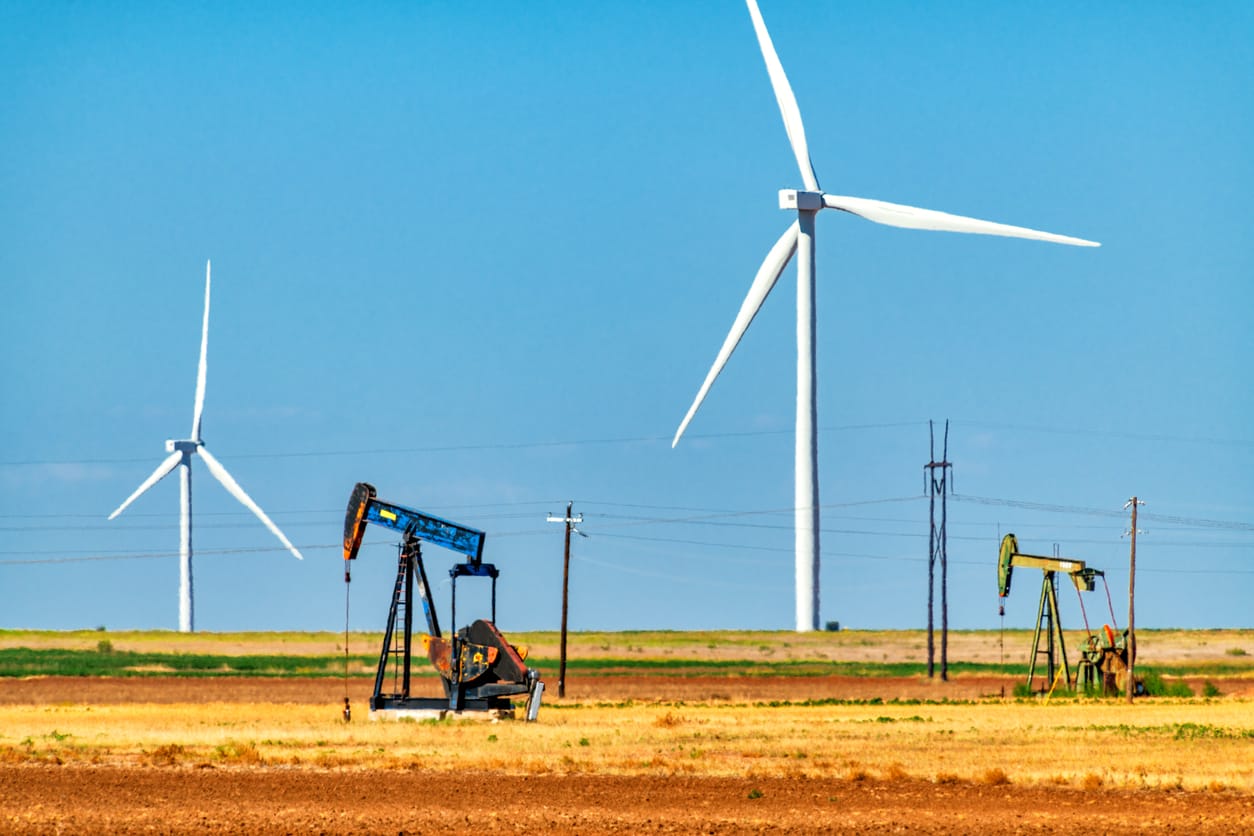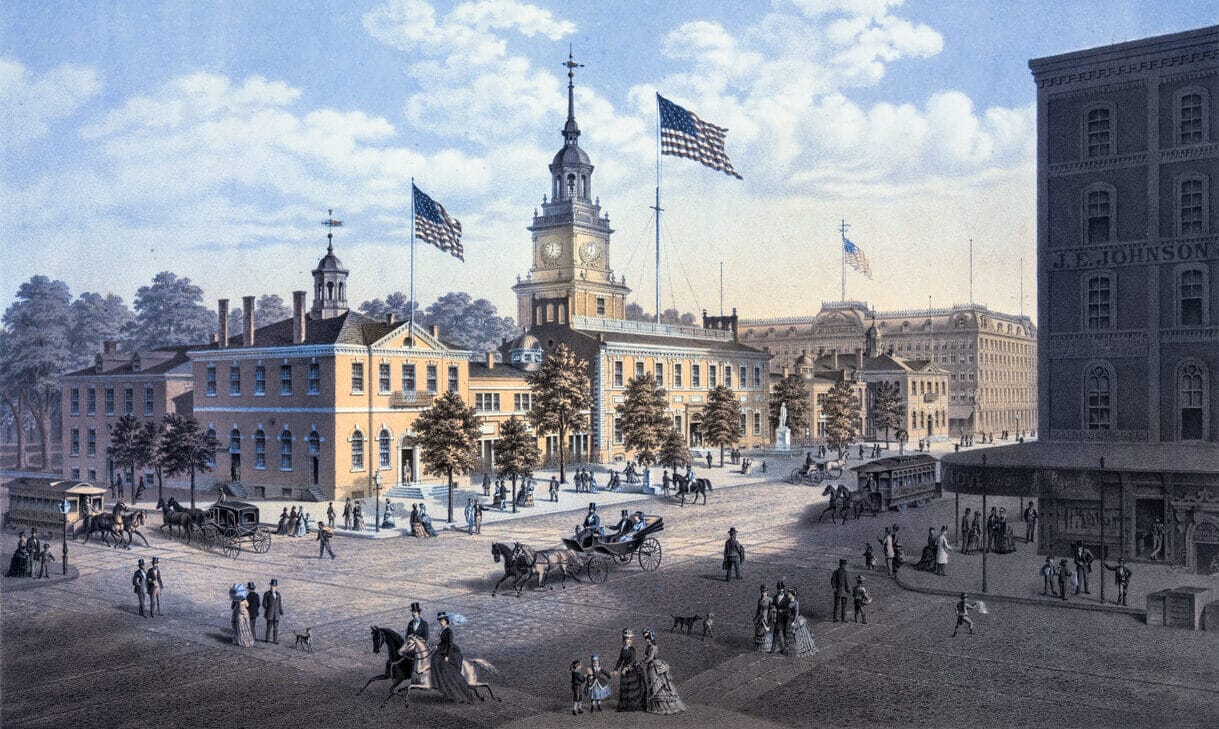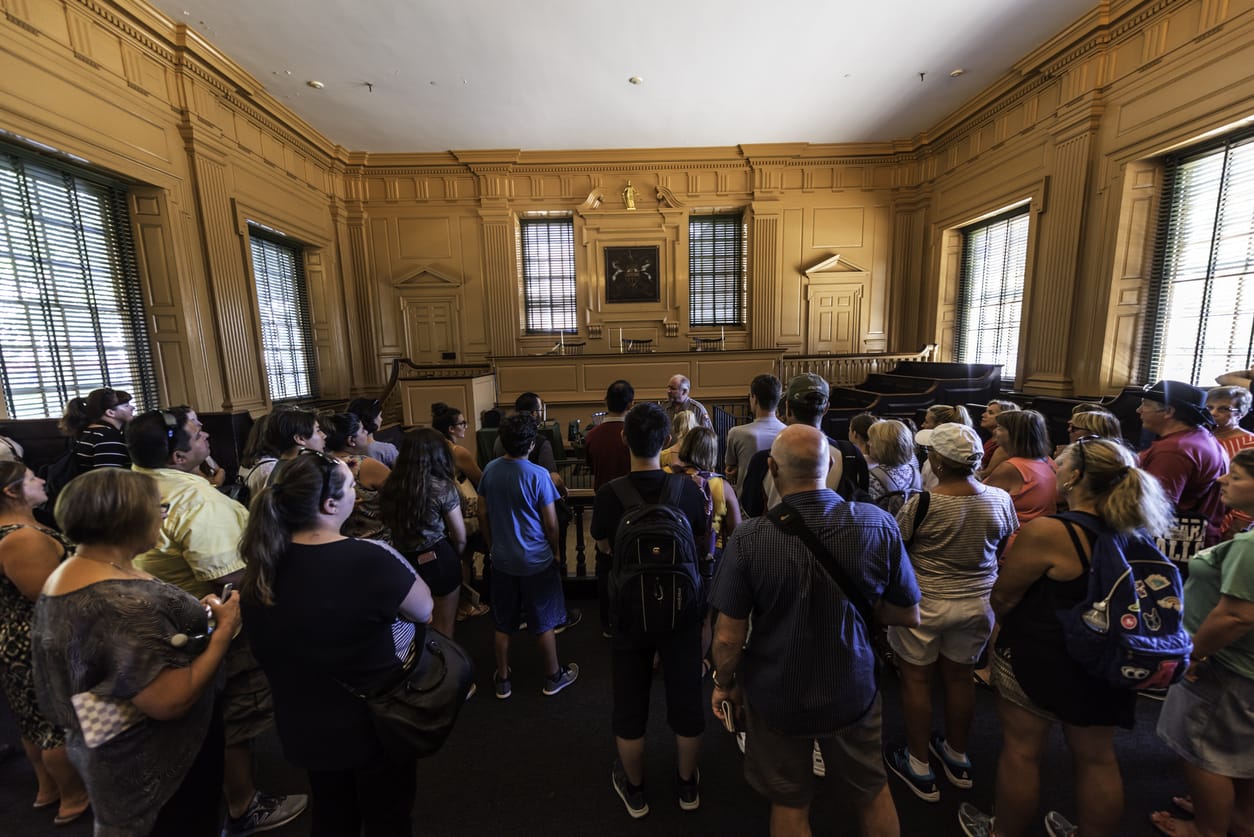The new wildcatters

West Texas oil to Bitcoin mining: Gideon Powell on innovation, energy, and the freedom to build
Gideon Powell is the CEO of Cholla Inc., an energy and innovation company rooted in hydrocarbon exploration and now expanding into Bitcoin mining, data centers, and venture capital. From 2013 to 2017, he led Cholla’s entrance into the Permian Basin, driving major growth and a successful exit. Since then, he’s focused on global power markets, where he identified Bitcoin mining as a tool for strengthening grids and addressing renewable energy’s reliability gaps. Passionate about liberty, Powell serves on the advisory board of the MIT Energy Club and lives in Dallas with his wife and four children. He recently spoke with American Habits Editor Ray Nothstine.
Years ago, around 2009 – 2010, I knew a guy who was mining Bitcoin in his basement. He’d tell me about his massive power bills. I deemed him crazy. I didn’t get it then, but later he had sports cars, so maybe it worked out. I’ve mostly been a boring index fund investor, but I really like the idea of solutions that protect people from inflation and the Fed’s money printing, which I see as destructive to the middle and working class. So, how did you get into Bitcoin mining, especially given your background in oil and gas, which I find fascinating.
Gideon Powell: My granddad was a real entrepreneur who started the business, so I grew up around oil and saw my dad loving that too. In 2011, I started reading libertarian literature. Ron Paul helped cure my depression and put the Federal Reserve on my radar. I became intellectually obsessed with monetary policy during my senior year of college and fell deep into the classical liberalism rabbit hole. I’d heard of Bitcoin back then, but it didn’t really click for me yet.
I really got into Bitcoin mining through my interest in monetary policy and the Fed. I genuinely believe inflation is evil. It’s a hidden tax on the poor. I know not everyone sees it that way, but that’s how I feel. When I realized Bitcoin could compete with monetary policy — that it could disrupt this monopoly — it was a huge ‘aha’ moment for me in 2016. Coming from a libertarian background and believing in free markets, I’ll always be grateful to Bitcoin for that. It’s tough, though, how do you explain to a single mom with two kids that she should be frustrated with the Federal Reserve? That’s a big leap for many.
That’s why I’ve always appreciated the Bitcoin community. Even if it somehow fails (which I don’t think it can, because its time has come), I’d still be grateful for the people I’ve met. They want to talk, debate, and really think deeply about monetary policy and inflation’s role in society. That alone is powerful.
As for how I got into Bitcoin mining specifically — I’m kind of a troll. I’d hear oil people complaining about the environmentalists, and the environmentalists complaining about the oil folks. I’m not afraid of the tension.
In 2017, there was really promising technology, not from a profit standpoint, because it wasn’t commercially viable yet — but it could reduce CO2 emissions by injecting it into oil fields, which also increased oil production. That caught my attention, especially through a bit of a troll lens. I thought, ‘Wait a minute, if we can invest in technology that both lowers CO2 and produces more oil, that’s a mutually beneficial thesis that could bridge tribal divisions.’
I had my intern digging into it, doing the quant work on new energy generation tech. We studied power markets globally, and we found that power in West Texas was incredibly cheap, if you could curtail and respond quickly to price signals. In 2017, you could get power below two cents per kilowatt-hour if you played it right.
We started looking into Bitcoin mining when my intern said, “Hey, my brother’s mining Ethereum, why not flip the equation? Instead of just selling power generation, what if we asked: what needs power and is fungible?”
We landed on the idea that Bitcoin mining is the most fungible form of manufacturing, it’s latency agnostic and can operate anywhere, which makes it ideal for building out energy infrastructure. We used to call that distributed compute ‘parallel processing.’ AI falls into that category too, though AI wasn’t our original thesis. It was more like: there’s a class of computation that can happen anywhere, so where’s the cheapest power?
That wide-open land triggers something in me…it’s daydream fuel.
It gave us a lab to prototype grid technologies and new compute strategies. And the beauty was that we didn’t need anyone’s permission. You just plug in and start making money. That meant our research capacity expanded, because we were running a profitable research project.
It all snowballed from there. We saw inefficiencies, chased them down, and eventually wildcatted and built the first Bitcoin mine in West Texas. Most people had the wrong mental models about how it would work, but we just leaned into market dynamics and price signals and showed how you could build a robust business by understanding them.
Critics often argue that Bitcoin mining is a drain on the power grid, that it drives up demand, increases pollution, and provides little real value in return. But in places like West Texas, there seem to be real economic incentives tied to it. Is this criticism a misunderstanding of how energy markets really work?
There’s a deeper debate here — one between a scarcity mindset and an abundance mindset. How would you respond to people who just see Bitcoin mining as a burden on the grid or a scam?
Powell: There are always going to be people, the Malthusians, let’s say, who view any use of energy as inherently bad. I’m not here to argue with them; that’s a philosophical divide and a waste of time. But for those willing to think critically, this all comes down to market design and price signals.
My favorite economist is Julian Simon, who said the ultimate resource is the human mind. He argued we won’t run out of oil molecules even if we run out of economic oil. When prices rise, three things happen: you find more of it, you compete with it (alternatives like solar or batteries), or you innovate. We’ve seen this repeatedly. Scarcity drives prices up, and innovation follows.
That same dynamic has never really existed in electricity until now. Power markets have historically been too opaque and rigid to send clear signals for innovation. But Bitcoin mining changes that. In ERCOT (Texas’s power grid), when demand spikes and power is scarce, prices go up and Bitcoin miners shut off. That’s not a drain on the system. That’s helping balance it.
We boost the utilization rate of existing infrastructure and send a price signal that says: “We need more generation.” That brings new supply online. Meanwhile, miners are economically incentivized to turn off during peak times, so we’re not competing with hospitals or homes. But it only works if incentives are aligned.
That’s why after eight years, I’ve come to believe we have to influence market design and legislation. These conversations fail on Twitter because people don’t ask the most basic question: “Which grid are we talking about?” In Texas, for example, some co-op grids don’t offer economic signals to turn off. So, I don’t — why would I? You won’t get real-scale behavior change without proper incentives.
Historically, we’ve focused on the generation side of the grid because we could control it. But we’ve never had load demand that could respond to price signals. That balance was broken when wind and solar entered the equation. Whether that’s good or bad isn’t the point. The point is: does your generation respond, and does your load respond?
Now that it can, thanks to technologies like Bitcoin mining, we can reimagine the grid. In Texas, we spend billions on subsidies for grid reliability. But we don’t need all of those anymore. Bitcoin miners already arbitraged one program worth $100 million a year. We proved it’s obsolete. So, kill it since it’s economic deadweight. We can deliver cheaper, more reliable power, and voters want that.
Policymakers may have concerns, but privately, many are excited. We’re aligned with the public and they want reliability and affordability, and we can provide both. We’re not just consumers; we’re building a new model for the grid. Compete with us.
Related to all that, for someone who’s not plugged into energy or tech, I’ll use the example of a lobsterman in Maine, just grinding every day. How would you explain what Cholla is and why it matters?
Powell: At its core, Cholla comes out of an upstream oil and gas background, specifically high-uncertainty exploration, almost like wildcatting. We took that same mentality of being comfortable with uncertainty and making bold bets and applied it to power systems and Bitcoin mining.
Cholla Inc. today is both a platform and an ecosystem. We’ve built cash flow from our oil and gas operations, and we’ve strategically acquired land across Texas to spec-develop power campuses. A lot of data centers come in and say, “We need a gigawatt now,” but they don’t really know how to deliver on that. We do. We’ve spent eight years banging our heads against the wall figuring it out, especially under the time pressures Bitcoiners often face. We learned how to move fast, build fast, and deploy compute with speed and scale.
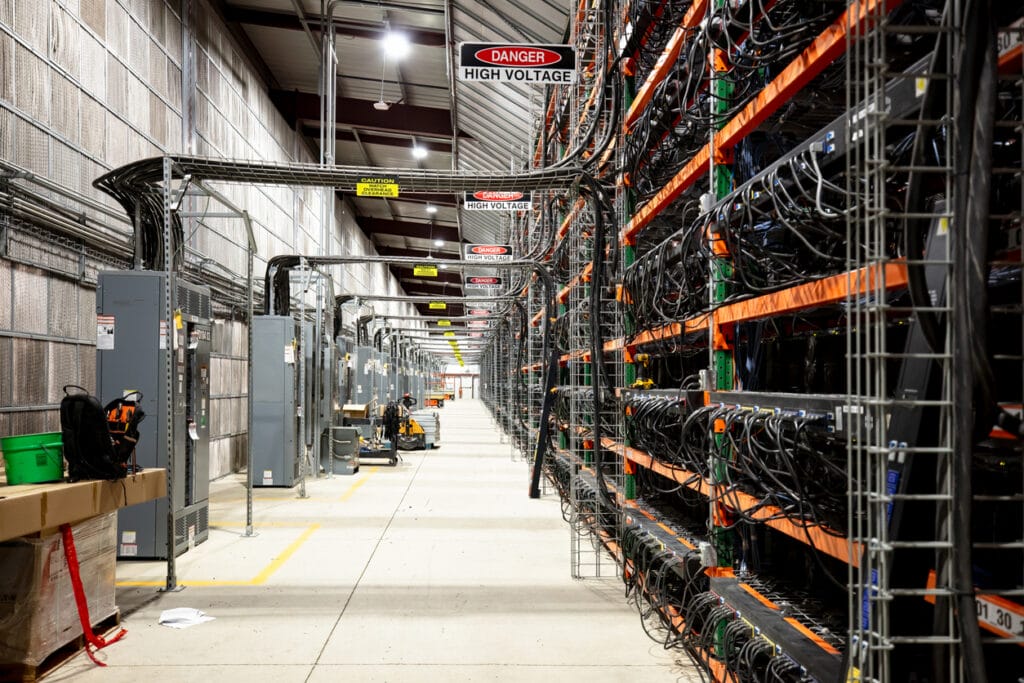
We’ve lived every part of the energy supply chain from the molecule in the ground to the power that hits the grid. And that full-spectrum experience lets us do something unique: partner with early-stage innovators. We love working with low serial number technologies — first-time solutions — because traditional utilities and hyperscalers just move too slowly to adopt new tools.
There’s never really been a strong economic incentive for innovation on the grid side until now. At Cholla, we’re safely prototyping new grid innovations, new software solutions, and testing them at small scale. We’re not waiting for permission. We’re funding this ourselves because we’ve lived the pain of raising capital for this work. My first Bitcoin project was a grind. I couldn’t raise capital. Thankfully, I came from a family business that helped us take early risks others couldn’t.
Ultimately, we see Cholla as a research and innovation hub. And once we’ve validated something, a new system, a new design, a new model, we take it to market and educate the end customers we’re selling these sites to.
I recently spoke with Fervo Energy, and I’m really excited about what they’re doing and one of their guys used to work for Scott Boras, the baseball agent, and made the leap into geothermal. As I dug in, it struck me how much credit oil and gas deserves for driving innovation in the broader energy space. Even the “greenest” technologies often build on breakthroughs from oil and gas like fracking and directional drilling.
You’ve got this classic American background in Texas oil and gas and clearly a deep understanding of the energy supply chain: what innovations or emerging technologies in energy are exciting to you right now?
After learning more about geothermal, I was struck by how similar it is to oil and gas and how much untapped potential it has. Are there any developments happening in Texas or elsewhere that you think could be the next big breakthrough?
Powell: Bitcoin solves the “chicken-and-egg” problem in energy innovation. There are amazing technologies out there, geothermal, advanced turbines, you name it, but they’re often stuck in remote locations with no way to monetize that power until a massive infrastructure build happens. Historically, that meant lighting money on fire with research and development and hoping it eventually pays off building a high-voltage power line to a city. Not anymore.
Now, if you wildcat a geothermal well in Indonesia or rural Utah that is great. My Bitcoin mining crew can show up, buy that energy on the spot, and lower your cost of capital. No one else, not an AI data center, not a utility, is going to take that first risk. We will. We buy power early, de-risk the project, and help scale it. When demand spikes, we curtail, instantly responding to price signals.
Bitcoin miners have become flywheel innovation partners. Fusion? SMRs? Maybe someday. But right now, solar, batteries, geothermal, we make all of them economically stronger. Why? Because we’re a perfectly rational, elastic load. That’s what excites me most, not any one power source, but the new mental models and ways to underwrite uncertainty in energy and compute markets.
We’ve become market makers for stranded and overlooked energy; the kind Julian Simon would be proud of. Tidal energy in the middle of nowhere? Gas reserves in Africa with no pipeline? No problem. We buy the energy, de-risk the project, and when scale hits, infrastructure follows. Then we pack up and do it again.
Bitcoin mining is pushing us toward a new level of civilization. It’s not just about profit; we’re helping unlock the latent potential of global energy.
You’ve laid out a strong defense of free markets, especially the role of price signals, and in some ways, Bitcoin mining acts like a seed investor for early-stage energy innovation. Stepping back a bit, how do you see energy policy as a test case for American self-government and local accountability?
And more broadly, what are your thoughts on human freedom? How does your work in energy and markets reflect your views on liberty?
Powell: One group that really impacted me is the Institute for Humane Studies. Their philosophy centers on classical liberalism and the idea of sparking a new enlightenment. Through conversations with some of the thinkers there, I’ve come to believe that the more we enable voluntary exchange, the more we build markets that offer clear price signals and the more we incentivize voluntary morality.
There’s also a strong correlation between energy use per capita and individual liberty. That’s why I see Bitcoin mining as more than just an economic opportunity, it’s a catalyst for energy abundance and, by extension, human freedom. Economic growth doesn’t just create wealth, it lowers violence, reduces crime, and improves almost every societal key performance indicator (KPI) we care about. But growth is being held back by trapped energy potential and unclear or broken market signals.
At Cholla, we’re not just asking which type of generation or which load matters most, we’re improving market liquidity, so price signals become more decentralized and responsive. That enables the optimization of entire supply chains. We’re removing barriers to innovate and grow.
This moment reminds me of what made the American oil and gas industry great in the first place.
There’s enormous latent demand for power, and Cholla sits at the nexus of that demand and the limited, constrained supply. Those constraints aren’t technical; they’re mental models and regulatory policy. But when the current door is closed, we build new ones. We’re exploring options like going off-grid entirely. Why wait for permission when we can prototype and deliver now?
That’s what gets me excited, we’re growing the economic engine, but we’re also aligned with voters and everyday Americans. And that alignment brings me deep moral satisfaction. Every policy we’ve advocated for, every bill we’ve written, has been empirically aimed at improving energy reliability and affordability. I’m proud of that.
We’ve hired lobbyists, but I’ve also been the guy on the front lines. My Bitcoin crew and I have tried to respectfully engage in the civic process, and I believe we’re going to win. It’s a matter of when, not if.
This moment reminds me of what made the American oil and gas industry great in the first place. My grandfather had a sixth-grade education, but through grit and opportunity, he built a career in oil. America led globally because we allowed people to self-organize and solve problems without requiring them to show up with a billion-dollar balance sheet.
Right now, in power systems, it’s the opposite: if you want to build something, you need to be a massive institution with decades of entrenchment. Innovation isn’t rewarded but blocked.
Now we’ve got this ragtag group of builders, people who can plug in machines and start innovating from their apartments. One of our best technicians started as an HVAC guy on low wages. He bought a Bitcoin miner, ran it in his apartment during free nights and weekends, and optimized his energy costs. When we saw that, we said, “Draft that guy. You’re running at 3.4 kilowatts — let’s take that to a megawatt. Then a gigawatt.”
Here’s the thing: everyone needs more reliable, affordable power. That’s universal. Whether you’re the biggest or smallest consumer, this work benefits everyone. That’s what makes it fun.
I’ve driven across West Texas several times, and there’s something haunting and wide open about it, a kind of lonesome beauty. It feels like the kind of place where you can dream big, but it’s also tough and isolating.
Given your roots out there, how do you think that landscape has shaped your mindset or worldview?
That is profound. As a six- or eight-year-old in the back of my dad’s truck, heading west across Texas, I’d look out and see that flat, open landscape and then, suddenly, a rig would appear. That mix of vastness and industry stuck with me. I don’t make the drive as often as I used to, but when I do, early morning, coffee in hand, heading west, there’s something transcendent about it.
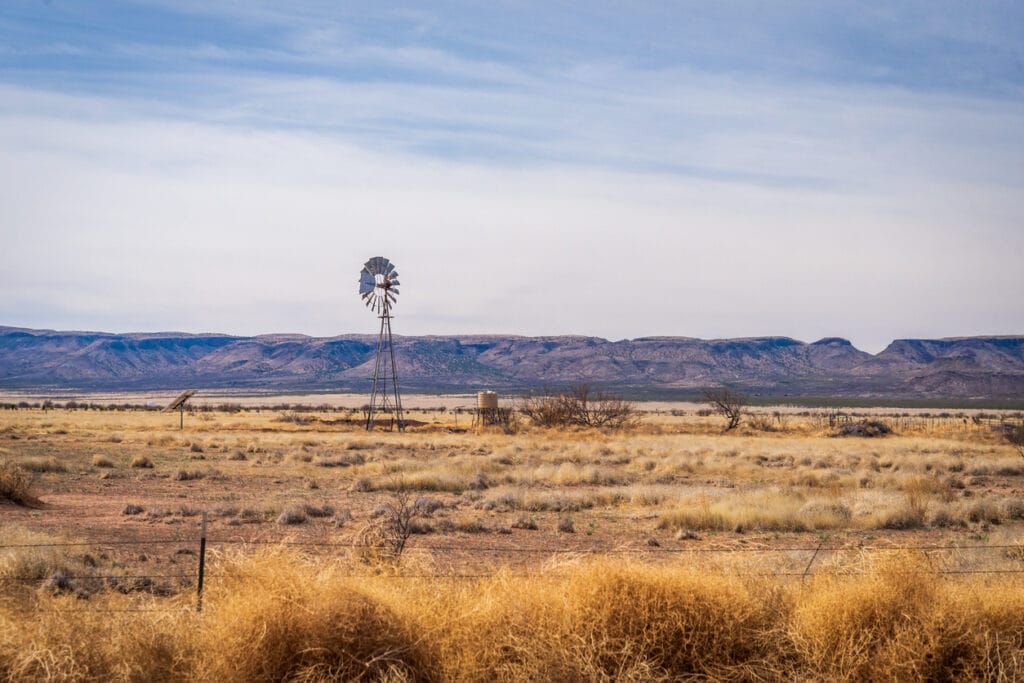
That wide-open land triggers something in me. It’s the old “Go West, young man” spirit. It’s daydream fuel. And I think that pioneering energy is deeply embedded in Texas and even in Bitcoin. There are real parallels between Bitcoin and Texas ranching or mineral dynasties. The first buyers of West Texas land weren’t chasing riches. They were gritty outsiders who believed in land and opportunity, not guaranteed outcomes.
These families held their land through pain, cattle markets, cotton busts, oil crashes. And if they kept the minerals, eventually the value rose. Why? Because of innovation. That’s Julian Simon’s thesis, right? In the early 1900s, everyone came to Texas because it was a training ground, the best minds in oil and gas came here, and then took that knowledge around the world. And why was that possible? Because of free markets, property rights, self-organizing systems, and a culture that prizes resilience and risk.
I think we sometimes miss the point when we frame things as “solar and wind bad, oil and gas good,” or vice versa. It’s not about politics, it’s about capabilities. The oil and gas industry has solved engineering problems at a scale few people can fathom. I’ve had data center folks try to tell me how tough their industry is. And I’ll say, sure but we’re not drilling two miles down and three miles out in total darkness, not pouring cement and erecting boxes. That’s not arrogance; it’s just a different kind of problem-solving.
Oil and gas produced world-class talent in managing uncertainty. And energy by its nature is full of unknowns. It offers some of the best risk-adjusted returns in the world because we’ll always need more power. The playbook keeps evolving, and that’s where I think Bitcoin fits in. It’s reawakening that same spirit, the willingness to explore, to experiment, to build from the edge.
That’s also why people from oil and gas, or even options traders, intuitively “got” Bitcoin early. We’re solving uncertainty. Whether you’re wildcatting for oil or building the first generation of off-grid compute for data centers, it’s the same mental model. The frameworks align, even if the tools differ.

